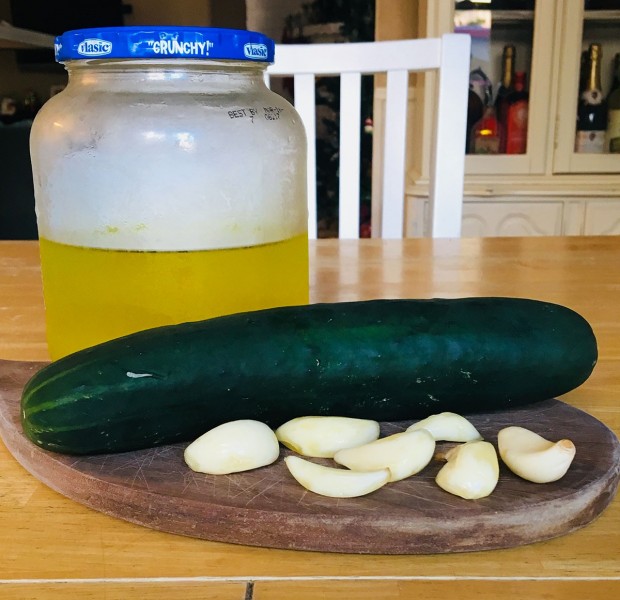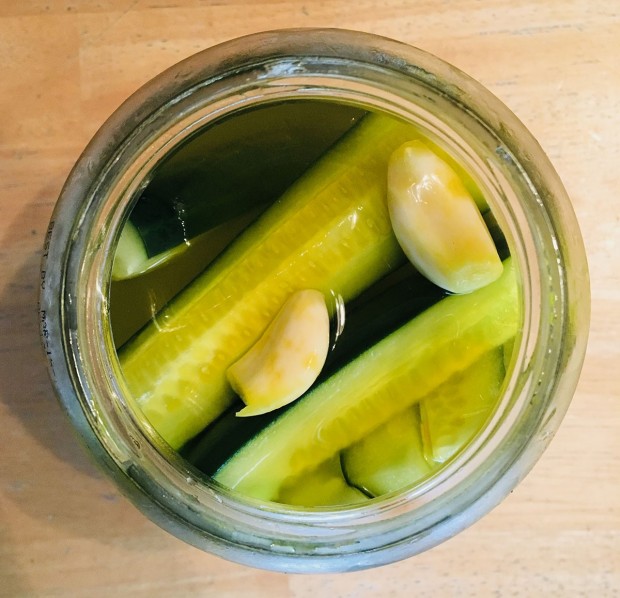Cooking with Karina: Pickled a Pickle

Karina Arnold is a junior at the University of Oklahoma who’s passionate about healthy cooking. She provides creative, healthy recipes and tips on clean eating.
Fermentation has a rich history and deep, delicious scientific implications. In the Netflix documentary, Cooked, food writer Michael Pollan explores cooking’s history and science through the lenses of the four main natural elements: fire, water, air and earth. On the last episode “Earth,” Pollan focuses on the ancient, mysterious fermentation process.
This episode traces back the roots of the term “ferment” and looks at past and modern uses of this “cooking without fire.” The word ferment translates “to boil” in Latin; however, fermenting beer, garlic, cucumbers involves a glass jar, liquid and no heat. Fermentation is the only a type of cooking that uses a “cold fire” or no heat. By definition, pickles are cooked cucumbers. After learning the history of pickling, I took a deep dive into the benefits of fermented foods and juices.

Karina Arnold says her easy Pickled Garlic and Cucumber recipe calls for three ingredients and patience.
For one, fermented products are packed with vitamin B-12 and vitamin C. If you chug a jar of pickle juice, you will consume more electrolytes than three Gatorade bottles. These vitamins and electrolytes release cramps almost instantly and hydrate your body quicker than regular water. My soccer coach always had shots of pickle juice for half time and every race or triathlon I run has pickle juice stations. Pickle juice is the perfect and sour drink for long, endurance training or for alleviating cramps. Not only does pickle juice hydrate humans, but also house plants! Pour your leftover juice in a vase next time your get flowers and watch them stay fresh and fragrant longer.
In addition to drinking, you can reuse old pickle juice to make more pickles. My Pickled Garlic and Cucumber recipe calls for three ingredients and patience. This recipe is the easiest “cooking” you will have to do. For more pickling practice, this website provides the perfect guide on how to cut or prepare foods you want to pickle. In addition to vegetables, pickled cheeses are delicious.
Cooked got me hooked on fermentation. Humans have used fermentation to preserve foods for centuries. After knowing the nutritional benefits and multi-purpose uses, it is no wonder we still use pickling today. Have any additional pickle juice hacks? Comment below.
Want more buzz like this? Sign up for our Morning Buzz emails.
To leave a comment, please log in or create an account with The Buzz Magazines, Disqus, Facebook, or Twitter. Or you may post as a guest.



